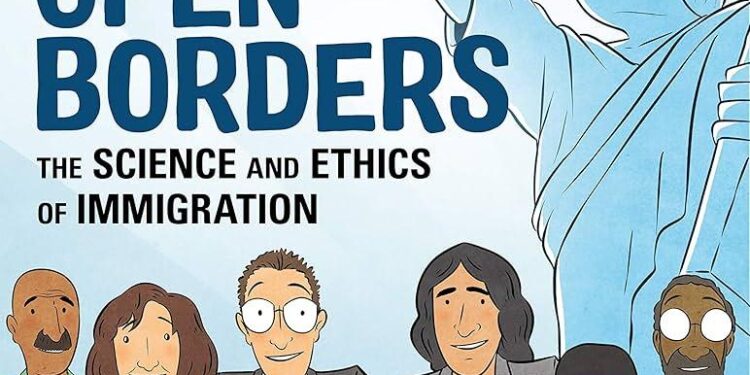America’s Immigration Evolution: From Open Borders to Restrictive Policies
Throughout much of its early history, the United States embraced a relatively open immigration policy, welcoming millions seeking new opportunities. This era, lasting until the mid-1920s, was characterized by minimal restrictions and a belief in America as a land of promise. Immigrants fueled industrial growth, enriched cultural diversity, and contributed innovative ideas that helped shape the nation’s identity.
The surge in immigration during this period was driven by several key factors:
- Industrial Expansion: Rapid growth in manufacturing created an insatiable demand for laborers.
- Political Upheaval Abroad: Many fled authoritarian regimes and conflicts across Europe and other regions.
- The Pursuit of Opportunity: The allure of social advancement attracted individuals from varied socioeconomic backgrounds worldwide.
This welcoming stance shifted dramatically with the enactment of the Immigration Act of 1924. This legislation introduced strict quotas that favored immigrants from Northern and Western Europe while severely limiting those from Southern and Eastern Europe as well as Asia. The change reflected not only growing national security concerns but also deep-seated racial prejudices intertwined with economic motivations.
Unpacking the Forces Behind the 1924 Immigration Act
| Main Drivers | Consequences on Policy |
|---|---|
| Racial Prejudices & Stereotypes | Sought to preserve an idealized “American” demographic by marginalizing groups deemed undesirable based on ethnicity or nationality. |
| Economic Protectionism by Corporations | Lobbied for limits on immigrant labor to control wages and reduce competition within industrial sectors. |
| Heightened National Security Fears | Drove increased scrutiny over immigrants amid concerns about foreign ideologies infiltrating American society post-WWI. |
This convergence resulted in policies that institutionalized discrimination through restrictive quotas favoring certain ethnicities while excluding others almost entirely. These laws were not merely reactions to external threats but also reflections of white supremacist ideologies prevalent at that time—ideologies which sought to maintain cultural homogeneity under a guise of national interest.
The Interplay Between Racial Bias and Corporate Interests in U.S. Immigration Legislation
The early 20th century witnessed how racial animus merged with economic agendas to redefine America’s immigration framework fundamentally. The 1924 law codified discriminatory practices into federal policy, privileging immigrants from northern European countries while drastically curtailing arrivals from southern/eastern Europe and Asia—groups often stereotyped as culturally incompatible or inferior.
Beyond racial considerations, powerful business entities played an instrumental role behind closed doors. As industries expanded rapidly during this period, employers initially welcomed immigrant workers due to their willingness to accept lower wages—a factor critical for sustaining profit margins amid fierce competition. However , rising labor movements advocating fair wages prompted corporate leaders to support restrictive measures aimed at limiting immigrant labor supply — effectively balancing profit motives against emerging worker rights demands.[1]
Building Pathways Toward an Inclusive Modern U.S. Immigration System
Tackling today’s complex immigration challenges requires comprehensive reforms centered on fairness, human dignity, and inclusivity rather than exclusionary tactics rooted in outdated biases or narrow economic interests. Key recommendations include:
- Create Transparent Citizenship Routes: Establish accessible legal pathways enabling undocumented residents opportunities for regularization leading toward citizenship status;
- Prioritize Family Unity: Reform family-based visa systems ensuring easier reunification processes recognizing familial bonds’ social importance;
- Abolish Discriminatory Quotas & Practices: Review existing laws perpetuating ethnic or racial disparities; implement equitable standards applicable universally;
- Earmark Work Authorization for Refugees & Asylum Seekers: Introduce temporary employment permits allowing these vulnerable populations meaningful participation within local economies during case adjudication periods;
< p > Additionally , fostering community involvement is vital . Governments should partner closely with grassroots organizations representing immigrant voices , facilitating trust-building initiatives such as :
- < strong >Public Education Campaigns : Promote awareness highlighting immigrants’ positive contributions , dispelling myths fueling xenophobia ;
- < strong >Support Infrastructure : Provide essential services including legal assistance , language acquisition programs , job placement aid easing integration hurdles ;
- < strong >Inclusive Feedback Channels : Create platforms where immigrants can share experiences influencing policymaking directly .
Concluding Reflections: Learning From America’s Immigration Past To Shape Its Future
The transformation triggered by the 1924 legislation remains one of America’s most consequential shifts regarding who is welcomed within its borders—and under what conditions. Rooted deeply in systemic racism combined with corporate self-interest, this legacy continues shaping contemporary debates around immigration reform today .
< p > Journalist Daniel Mendiola ’ s insightful analysis reminds us how crucial it is not only to acknowledge these historical dynamics but also actively address their enduring impact if we aspire toward creating more just policies reflecting modern values — equity , inclusion , respect for human rights — ultimately fostering an America where diversity thrives rather than divides . Understanding this context equips policymakers , advocates , citizens alike better navigate ongoing discussions about national identity amidst global migration trends projected only to increase further throughout this century . < / p >














